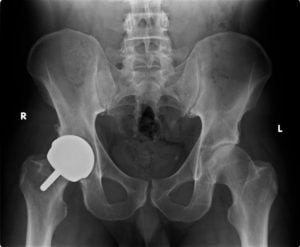What is Hip Resurfacing?
For some patients with osteoarthritis, hip resurfacing can be an excellent alternative to hip replacement. The key difference between the two procedures is that, in hip resurfacing, the femoral head is simply capped rather than being removed and replaced with a prosthetic ball. The acetabulum (cup) is prepared in the same fashion as a hip replacement with use of a prosthetic cup.
Advantages of Hip Resurfacing
The potential advantages for hip resurfacing is that the patient’s own bone is conserved and the natural anatomy of the hip is more accurately maintained. It has been proposed that preserving femoral bone and maintaining native hip offset can allow for a more natural feeling joint. This type of procedure has been quite popular with younger and more active patients.
Hip Resurfacing Products Currently Available
There are many hip resurfacing products on the market today. With some of these products there have been increased failure rates. For instance, Depuy Orthopaedics has recalled the ASR acetabular cup due to unacceptable rates of failure.
Of all the hip resurfacing products on the market, many physicians (including Dr. Wind) feel that the Birmingham Hip Resurfacing (BHR) product has the best outcomes and longest term results. The BHR was approved by the Food and Drug Administration for use in the United States market several years ago after many years of successful results were seen in the European data.
In order to implant the BHR in the U.S., surgeons must complete specialized training and be certified for use of this product. Dr. Wind has been certified for use of the BHR since 2008 and performs this procedure for appropriately selected patients.
Hip Resurfacing: A Possible Alternative to Total Hip Replacement
The long term results of hip resurfacing are approximately equal with that of total hip replacement. There are some contraindications to this procedure and not all patients with hip pain are candidates for BHR. Some patients have a natural femoral anatomy that does not allow for proper resurfacing. Also, BHR is not recommended in cases of avascular necrosis (AVN) of the hip. There is also the potential risk of femoral neck fracture. Nevertheless, the BHR is an excellent option for many patients.

Successful treatment of hip osteoarthritis in a 46-year-old male with Birmingham Hip Resurfacing
Explaining the Risks and Benefits
Dr. Wind is happy to discuss with a patient whether or not he/she would be a candidate for hip resurfacing and also to explain the risk and benefits of differing hip replacement options.
